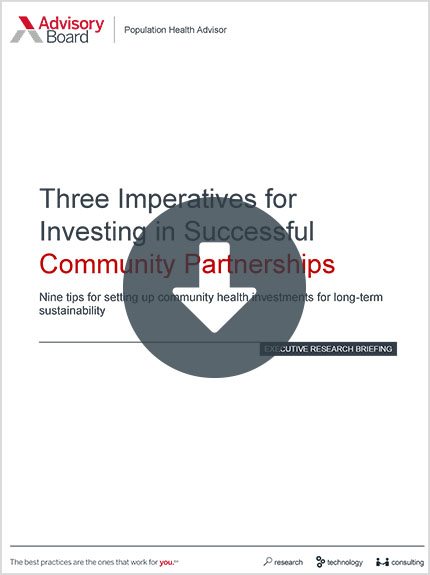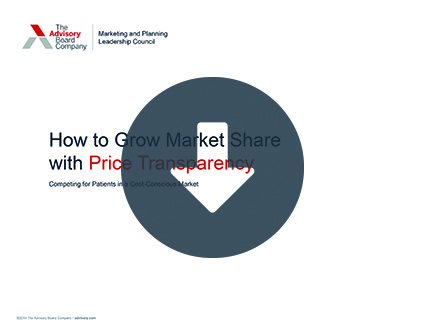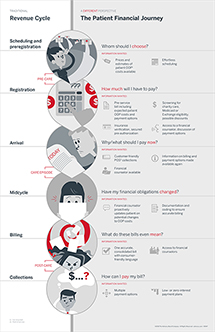Auto logout in seconds.
Continue LogoutCritiques of the U.S. health care system often focus on systemic issues, but that focus overlooks the important role patients play in health outcomes and spending, David Freedman writes in The Atlantic.
Infographic: What patients want along their financial journey
Are US patients responsible for their own poor health outcomes?
Much of the debate about how to improve the U.S. health system while lowering costs focuses on systemic factors, such as payment systems, hospitals, and physicians. "Surely if we could just import Singapore's or Switzerland's health care system to our nation, the logic goes, we'd get those countries' lower costs and better results," Freedman writes.
But what's missing from these observations "is, well, us," Freedman writes. "In other words, we need to ask: Could the problem with the American health care system lie not only with the American system but with American patients?"
In short, yes, Freedman argues, in a piece provocatively titled "The Worst Patients in the World."
Existing research suggests that patient behavior may influence health outcomes and costs in the United States, and could, at least partially, explain the variation in health outcomes among U.S. states and counties, according to Freedman.
He cites a study published in JAMA Internal Medicine in 2017 that found 74% of the variation in life expectancy across U.S. counties is due to lifestyle factors, such as smoking and inactivity—"which is to say, by [the] patients themselves," Freedman writes.
Similarly, research estimates that providers account for only 10% to 25% of life expectancy variation within a country. "What patients do," however, "seems to matter much more," Freedman writes.
Somava Saha, a primary care physician and VP at the Institute for Healthcare Improvement, explained that patients are more likely to exhibit healthy behaviors if those behaviors are common where they live. For instance, Freedman writes that "healthy community norms are particularly evident in certain places with strong outcome-to-cost ratios, like Sweden," Freedman writes.
But in the United States, however, patients' unhealthy lifestyle choices are rooted in U.S. culture, Saha said. Americans have a weaker sense of community, according to Saha, which makes them harder to influence. "We tend to see health as something that … health care systems ought to do for us," she said.
What about health care spending?
On top of influencing health care outcomes, American patient preferences may also play a significant part in the country's sky-high health care spending, according to Freedman.
In order to understand the United States' health care costs, "we must consider Americans' fairly unusual belief that, when it comes to medical care, money is no object," according to Freedman.
One survey found that 85% of patients surveyed considered a doctor's compassion as an important factor when making health care decisions, but only 31% named cost as an important factor. This is why "attempts to cut back on expensive treatments," such as the rise of value-based care, "are met with patient indignation," Freedman writes.
"Any patient here would object to not getting the best possible treatment, even if the benefit is measured not in extra years of life but in months," said Gilberto Lopes, the associate director for global oncology at the University of Miami's cancer center. In Singapore, however, where Lopes once practiced, it is common for patients to refuse a "moderately expensive but effective," and possibly lifesaving, treatment, Freedman writes.
American patients also are more likely to trade in routine care for care from a specialist or an ED. Americans get referrals to see specialists more than twice the rate of patients in the United Kingdom and end up in the ED more often than patients in other countries, Freedman writes. About 42% of U.S. patients with chronic migraines said they visited the ED for their headaches versus 14% of U.K. patients, according to Freedman.
These patient preferences can lead to overtreatment, which is a major driver of health care costs, according to Freedman.
Part of Americans' propensity for more treatment could be due to the fact that, in the United States "death, even for the very aged, tends to be fought tooth and nail, and not cheaply," Freedman writes. By contrast, in other countries, death is often considered "inevitable," according to Saha.
All things considered, "it makes sense that a wealthy nation with unhealthy lifestyles, little interest in preventive medicine, and expectations of limitless, top-notch specialist care would empower its health-care system to accommodate these preferences," Freedman writes. Similarly, it makes sense that the system that thrives from patients purchasing "over-the-top care" would have little incentive to encourage patients to seek alternatives (Freedman, The Atlantic, July 2019
What patients want along their financial journey
Follow the patient financial journey, from pre-care through billing and collections. Learn a patient's questions and fears that arise at each step, and what tools and support your revenue cycle program must proactively provide.
Don't miss out on the latest Advisory Board insights
Create your free account to access 1 resource, including the latest research and webinars.
Want access without creating an account?
You have 1 free members-only resource remaining this month.
1 free members-only resources remaining
1 free members-only resources remaining
You've reached your limit of free insights
Become a member to access all of Advisory Board's resources, events, and experts
Never miss out on the latest innovative health care content tailored to you.
Benefits include:
You've reached your limit of free insights
Become a member to access all of Advisory Board's resources, events, and experts
Never miss out on the latest innovative health care content tailored to you.
Benefits include:
This content is available through your Curated Research partnership with Advisory Board. Click on ‘view this resource’ to read the full piece
Email ask@advisory.com to learn more
Click on ‘Become a Member’ to learn about the benefits of a Full-Access partnership with Advisory Board
Never miss out on the latest innovative health care content tailored to you.
Benefits Include:
This is for members only. Learn more.
Click on ‘Become a Member’ to learn about the benefits of a Full-Access partnership with Advisory Board
Never miss out on the latest innovative health care content tailored to you.



